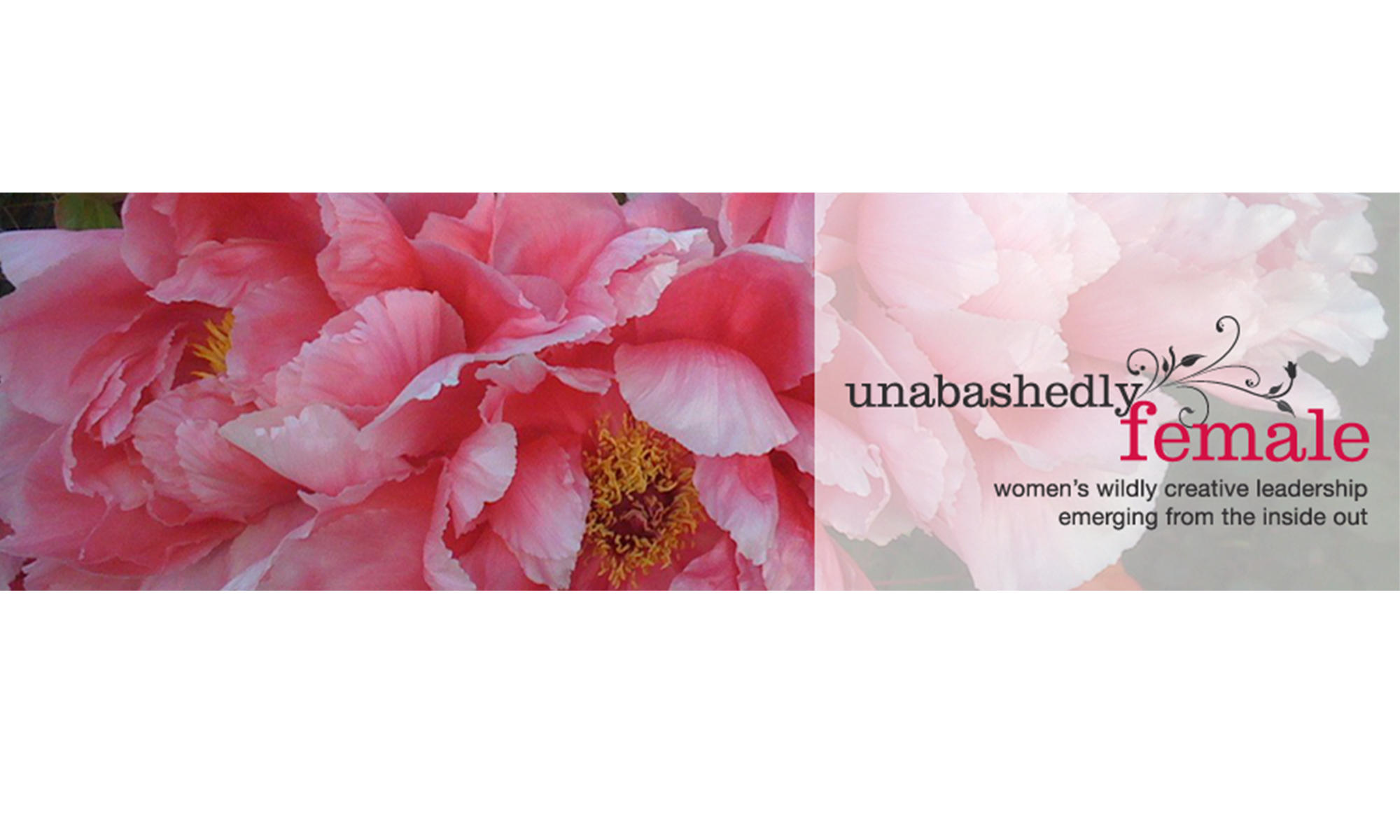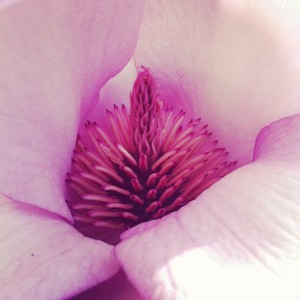I originally wrote this piece for Amy Oscar and her wisdom series – a series of thirteen posts by women whose writing she enjoys. Amy’s series wrapped up on Monday, and after the fact, I realized that you may not have read what I shared. So, I’m offering it here. Do go and check out Amy’s blog. Not only are there some fabulous posts in this series, but Amy’s blog is one I regularly read and thoroughly enjoy. I have a sense you will, too. I’d love to know what you think of this post, how it affects you, and what you feel about it.
::
I sit here poised to write.
My good friend Amy Oscar has asked me to contribute a post on wisdom to her spring collection of works by bloggers she loves to read.
I feel honored. I value and respect her work. I want to write something good, something fresh, and something alive.
So, I sit still and listen to my body. I close my eyes and ask my body what wants to be shared. This is where aliveness is, not in my thoughts about what I am feeling and desiring, but in the direct experience, in the cells of this body. Alive. Light. Numinous. Awake.
My body speaks of fertility, of abundance, of the rhythms of nature. My body knows these rhythms, even if my mind has forgotten.
I am aware of how much our culture fears the wildness of women, our wild nature. So much so, we have all but destroyed the home where we live, our beautiful Earth, in our quest to control and dominate this wild nature.
Feral and fertile, women’s creativity and sexuality are intertwined, like a long, long braid of gold. We know this deep in the center of our cells.
As Isadora Duncan wrote, “You were once wild here. Don’t let them tame you.â€
The body knows this. It knows we were once wild, and it knows we believe we’ve been tamed. Old traumas and unwelcome emotions are trapped in the body, trapped until we realize the soul’s longing to be free.
As I begin to write,
I can sense my strong sexual energy and a passion for creation. I feel deeply and I am happiest when my body is set free to express this passion through movement and dance, when I paint and the colors run freely on the paper, when words, whispered from someplace unseen, come to rest, together, in a way I could never have planned.
Women are different than men. Yes. We are different. It is not only okay to say that, it is imperative we see this. Why? Let me share a story with you.
A while ago,
perhaps six years or so, I took a class called mess-painting. Mess painting is a kind of process painting, where you use tempera paints, brushes and wall street journal pages to burn through layers that keep you from your deep creativity.
In the six-week process, I painted in my own apartment, in a tent of plastic sheets that I hung from the ceiling. This is a very messy process. I painted six days a week, at least twenty paintings in a session, where each painting was created in the span of two minutes.
In mess painting, the process is to cover one full sheet of Wall Street Journal paper (the ink used doesn’t run) with paint using brushes and any of eight specific colors. That’s it.
It’s a very physical process. You have to move quickly. There is no time to think about what colors you want or how they should go on the paper. There is only enough time to move the brush to the color then to the paper, allowing something more present than thought to choose which color and where to place it.
About four and a half weeks into the process, I suddenly felt a very different energy begin to move through me. It felt wild and untamed. It felt animal and soulful. I had the overwhelming urge to drop the brush and dive in with my body. I painted with my fingers, hands, and elbows. I couldn’t get enough of my body into the process.
I painted until the energy quieted. And then I wrote this:
When I mess-paint, I come alive. I can’t wait to pull out the colors and begin. When I am painting I am totally engrossed. I love to see the colors mix together on the paper, to see what transpires in a given session. I find I can’t get enough of me into the mess – hands, fingers, fingernails – I am so taken with the paintings that I keep watching them as they dry, dying to see what beauty is there. What are the qualities of my painting? There is an energetic pulse to it. I can feel my soul coming through me. Does it come charging through me like a tiger? Does it spread itself on the paper with love and softness, or even reckless abandon?
It is akin to intimacy – when there are no longer any barriers between another and me: when clothes are off, small talk is quieted, distractions are gone, and there are only the two of us in conversation. The language is intimacy. The “words†are infused with love and deep meaning. There is a direct channel open where truth and soul are shared without reservation, without holding back. Passion, desire, and love all come pouring forth into this conversation between two beings. That is the incredible connection and intimacy that I long for. That is the juice I find in painting. When I create art, it is an individual act. It feels like connecting with myself in a deeply intimate way.
As I read again what I wrote then, I can feel the joy I felt in the liberation of this fiery self. I can feel the love and aliveness, and my soul’s desire for connection and expression. The direct connection between creativity and sexuality is right there and so plain to see.
I’ve been taught
to fear this power, to fear my feral side, my passion, my fire, my ferocity and uncontrollability. I’ve been taught well to fear chaos, yet it is from chaos that anything new is born. And while I was taught this, it is me that keeps it under wraps.
Chaos was wildly singing during that painting session.
Chaos is here, right now. Chaos is ushering out the old and inviting in the new. The old way is dying. Something new is coming. And we have no idea at all what that is.
It is time.
It is time to open deeply to this wild nature as woman. It is time to know it, to invite it out, to welcome it to express. It is time that we see the feminine cannot be reawakened by only knowing the feminine principle in both men and women. We must also honor the spiritual nature of women, the nature that flows through women’s bodies in ways it simply does not in men.
I’ve struggled to articulate my deep knowing that we women have this precious opportunity to come to know the sacred within the cells of our own bodies, how our bodies serve spirit in ways men’s’ bodies cannot, and what this direct experience and realization might do for the evolution of human consciousness.
And in my struggle to write about this, I happened upon an article written last year, by one of my favorite authors on this topic, Hilary Hart. Â Hilary writes,
“This spiritual insight into the created world inquires into the nature of women’s bodies, and asks if the receptivity of the vagina, the spirit/matter-integrating capacity of the womb, the nourishment of our breasts, reflect an esoteric dimension that receives energy, serves the infusion of spirit into the physical world, and feeds life in a way men cannot.
Do our bodies show that we offer different gifts and have distinct roles in our collective spiritual evolution, just as they have different roles in the material realm?
While answers to these questions are not easy to come by, asking them opens us to an intriguing and compelling line of inquiry into an entire new spiritual territory – the spiritual nature and power of the incarnated world.â€
I know…
I know the spiritual nature and power of this physical world by direct experience.
I know it because I’ve experienced it by way of the body’s cycles, by way of menstruation, pregnancy, birth, and breastfeeding my daughters.
I know it when I remove myself from the places where I tend to be most in my head and go into the places that call to the wild succulence of my body.
I know it through the direct witnessing of the deaths of those people in my life I have profoundly loved and the births of those bright angels who are now vibrantly part of my life.
I know it because I have witnessed the cells of my own body come awake again, after a long, long sleep.
It is not mirrored in the collective consciousness, yet that does not negate it one damn bit.
It is neither valued nor protected in the linear, masculine-centric institutions of our culture, whether they be political, medical, legal or religious, yet we know this way down deep in our cells.
When I read Hilary’s words, clarity flows from the connection between my own knowing and her clear articulation. A gap that had been is now bridged.
It’s as if I have been hovering above my own knowing, not quite ready to drop down in all the way. It’s as if I’ve been held up by old beliefs that still infused my awareness, beliefs that kept telling me that the sacred is somewhere else, somewhere up there, and certainly not in this female body.
We don’t need to transcend our bodies to know the sacred realm. And we don’t need to look out there for our power as women. All we need to know is here, right here, within us. It’s already here.
My body has guided me through this writing. It has taken me on the journey of discovering something wholly new.
Our way is the way of the body. Our bodies are sacred and pure. Our creativity and sexuality are physical manifestations of the creative power of the sacred. Whether or not we ever physically give birth to a child, our bodies are vessels for new life. This is the “spiritual nature and power of the incarnated world.â€
::
And, you?
I’d love to know of your experience of the “spiritual nature and power of the incarnated world.â€




